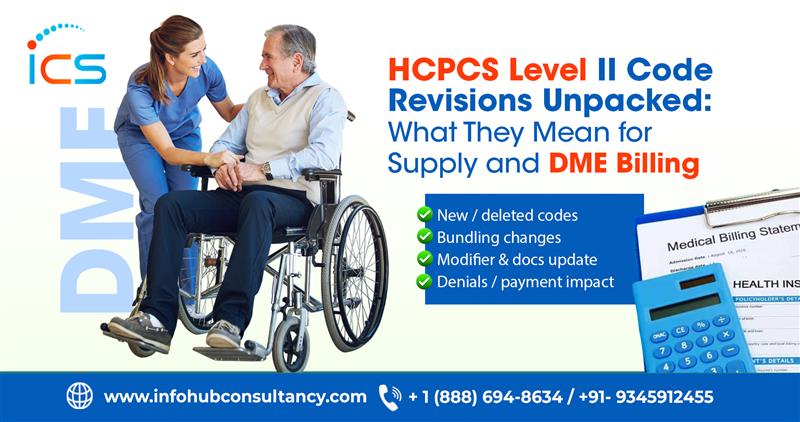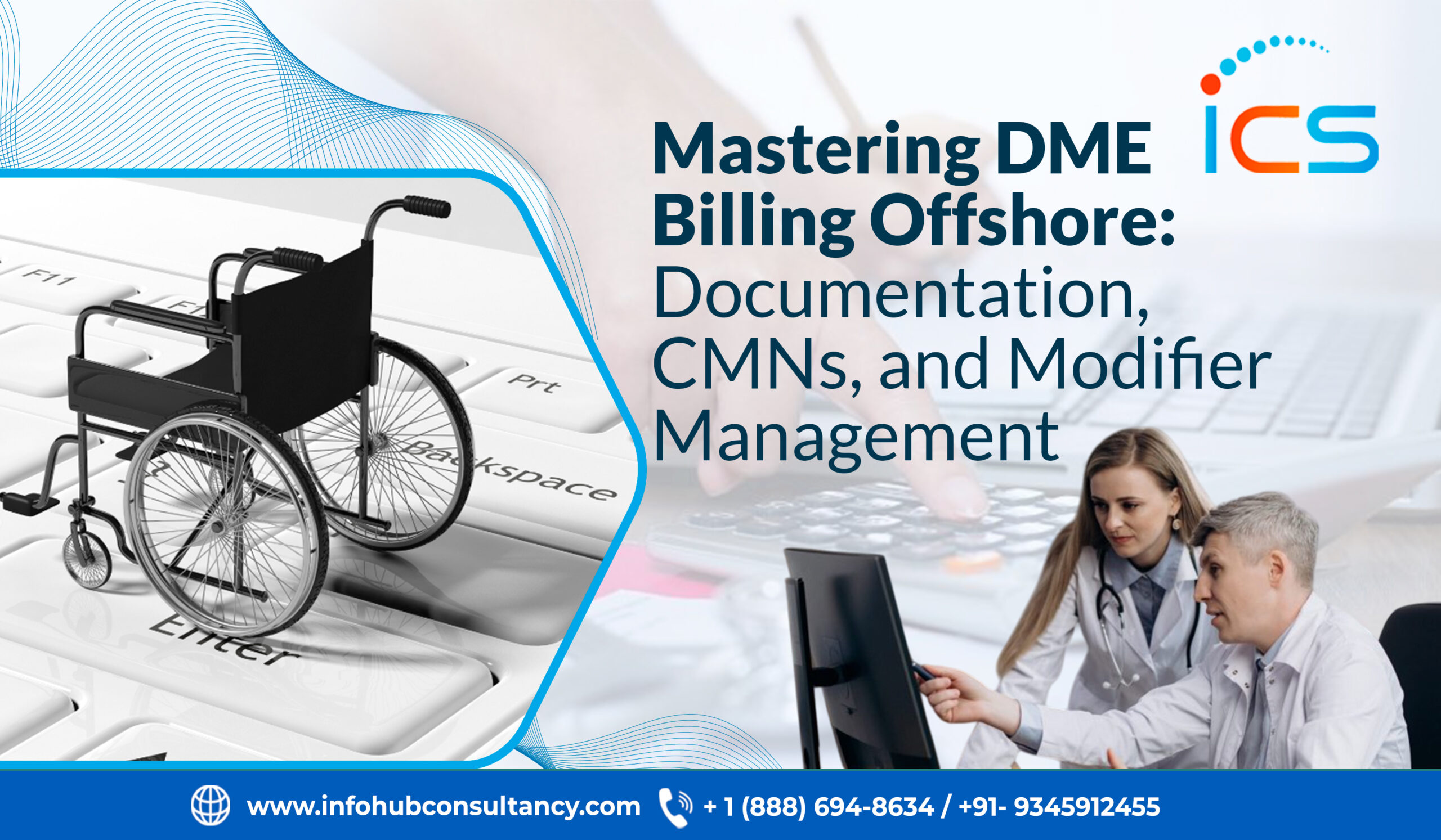Every healthcare organization strives to build a strong medical billing service to offer a robust billing service designed to improve revenue cycle needs while operating both securely and ethically. Medical billing service is an intricate process, and healthcare providers find it difficult to maximize reimbursement for their services. The same applies to DME services.
To maximize the reimbursement a DME service provider must follow:
- Precise medical coding
- Use of technology
- Transparency in billing policy
- Systematic billing process
- Thorough monitoring of accounts receivable
- Frequent upgradation of policy guidelines and regulations
- Verification of insurance coverage
- Outsourcing billing services
- Well trained billing staff
- Consumer safety and satisfaction
Here are best practices in DME billing services that can help boost collections:
1. Medical Coding:
Understanding the importance of accurate medical coding leads successful medical billing in DME. Medical codes are used to understand the medical services provided to the patient which is used to bill insurance companies and for other payers. The revenue of the company depends on the coding process as incorrect coding can result in underpayments or claims denials.
2. Technology Application:
DMEs need to invest in the usage of technology for billing services as it ensures security of patient data, reduce errors and improves efficiency of work. Likewise, DME providers should create patient portals like EHR (electronic health record) to permit patients for reviewing their bills and making online payment for their medical service. This not only reduces the time and effort of the billing process but also develops trust of the patient in the healthcare provider as there is transparency in the billing.
3. Transparency in Billing Policy:
A growth in the RCM (revenue cycle management) is possible with a clear and error free billing policy. The billing policy should define a thorough information about the patient details, services provided, insurance coverage, submission of documents and claims. Clear billing policy guidelines help patient understand their billing summary which thereby leads to consistency of the billing process.
4. Systematic Billing Process:
A systematic DME billing process helps build an error-free and smooth flow of the billing process which leads to reduced claim denials and growth in the revenue cycle. DME providers should involve the use of electronic healthcare billing system to automate billing process as it saves time, efforts and ensures fewer errors with quicker reimbursements.
5. Monitoring of Accounts Receivable:
It is one of the important factors of Durable Medical Equipment (DME) billing services. It includes regular communication with the patient and payer to ensure that claims are paid on timely basis. It is important to understand the trends and regulations of the billing process to avoid errors and claim denials, deep monitoring of the accounts is required to identify the underpayments and unpaid claims and thereby following up for the same is equally important.
6. Update of Policy Guidelines:
The polices and guidelines in DME medical billing are constantly changing, which indicates that the DME provider should be updated. Companies that are up to date with policy guidelines can aim at maximum reimbursement and compliance. Investing in the training program for the billing staff would yield in better billing services as the staff will be well aware about the latest regulations. Attending seminars and conferences would be an add on advantage for the healthcare company to stay up to date about the latest regulations and policy.
7. Outsourcing Billing Services:
When a DME provider outsources its billing services, it can work efficiently and effectively. Moreover, the provider can focus on patient care. Outsourcing billing services can reduce work load, be cost effective and contribute in improving the revenue cycle management. Outsourcing can also reduce errors in billing process, and result in increased revenue cycle and faster reimbursement of claims.
8. Trained Billing Staff:
Trained billing staff can be an asset to the organization as trained employees tend to make less or no errors while billing process. Less errors also bring less claim denials and underpayments. Healthcare organization should arrange for training programs for their employees on regular intervals so that they can polish their knowledge on the technical, social and personal front. Patient satisfaction can also be achieved by well trained staff that ultimately results in increased revenue.
9. Verification of Insurance Coverage:
Eligibility of the patient for medical claim and insurance coverage needs to be checked before processing of any billing services. It is a vital part of the billing process. This also ensures error free billing process by having less claim denials and underpayments and ensures the healthcare providers get complete reimbursement.
10. Patient Safety & Satisfaction:
By following a systematic billing process and ensuring patient data is safe and secure, the DME provider can build a strong bond with patients. Providing consistent and efficient services the healthcare organization can generate more revenue and reimbursement management.
Conclusion
Info Hub Consultancy (ICS) Services, a leading medical billing company in India has years of experience in assisting DMEs increase their profits with medical billing and coding services, tailored to every need. We provide assistance in maximizing revenues, reducing billing errors and increasing patient satisfaction. Contact us today to see how we can help your organization reach its financial goals.

 Medical Billing
Medical Billing  5 mins read
5 mins read 









